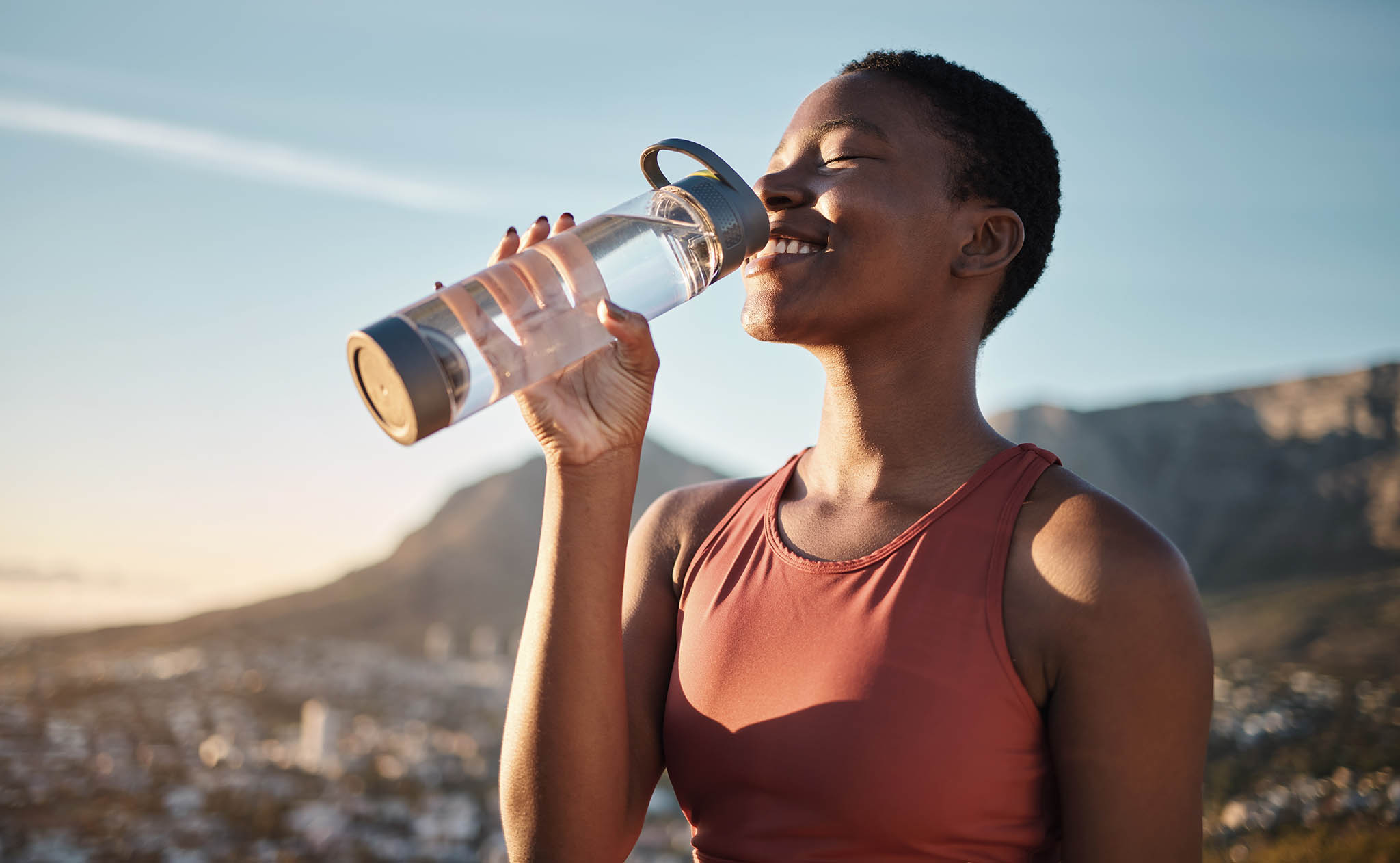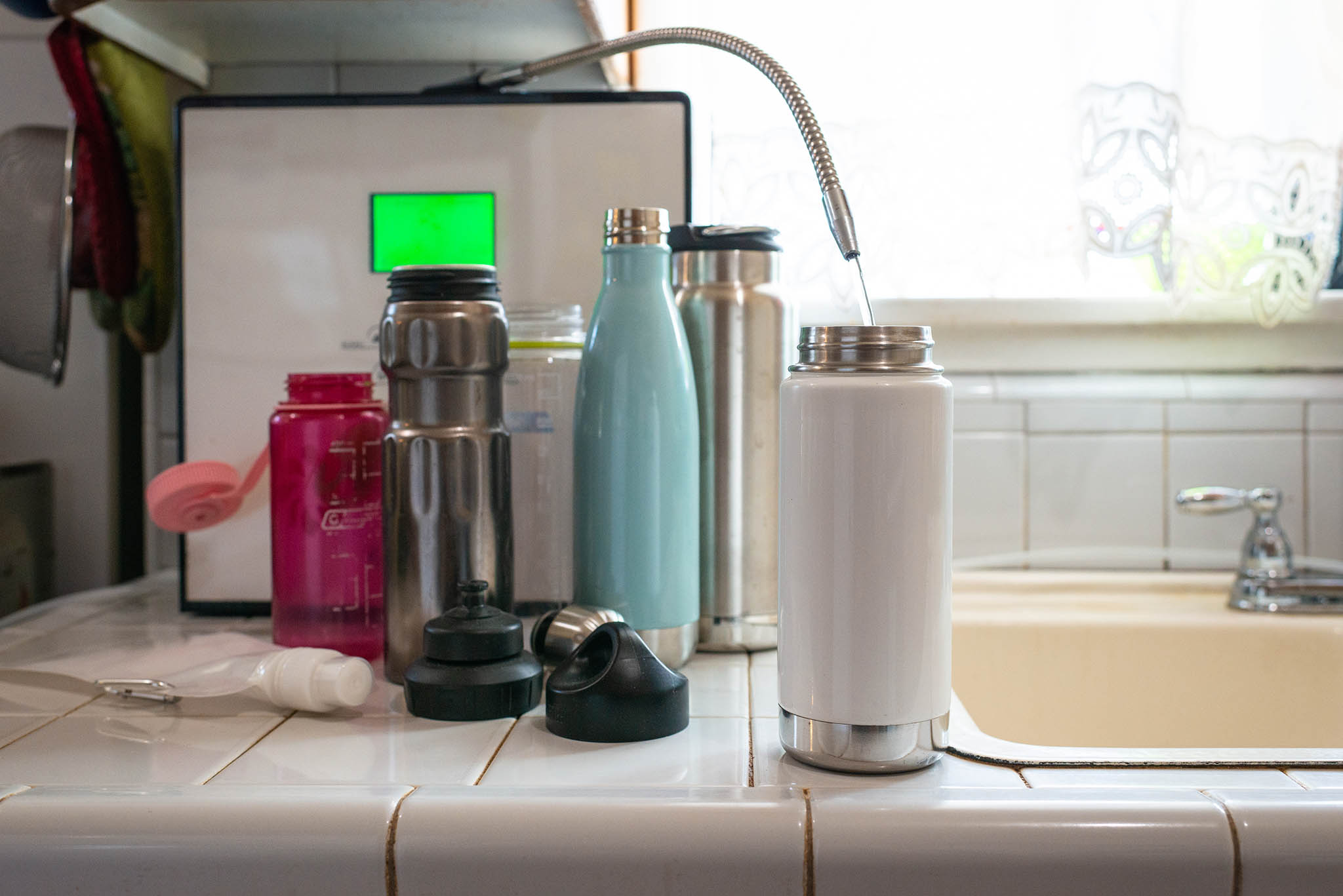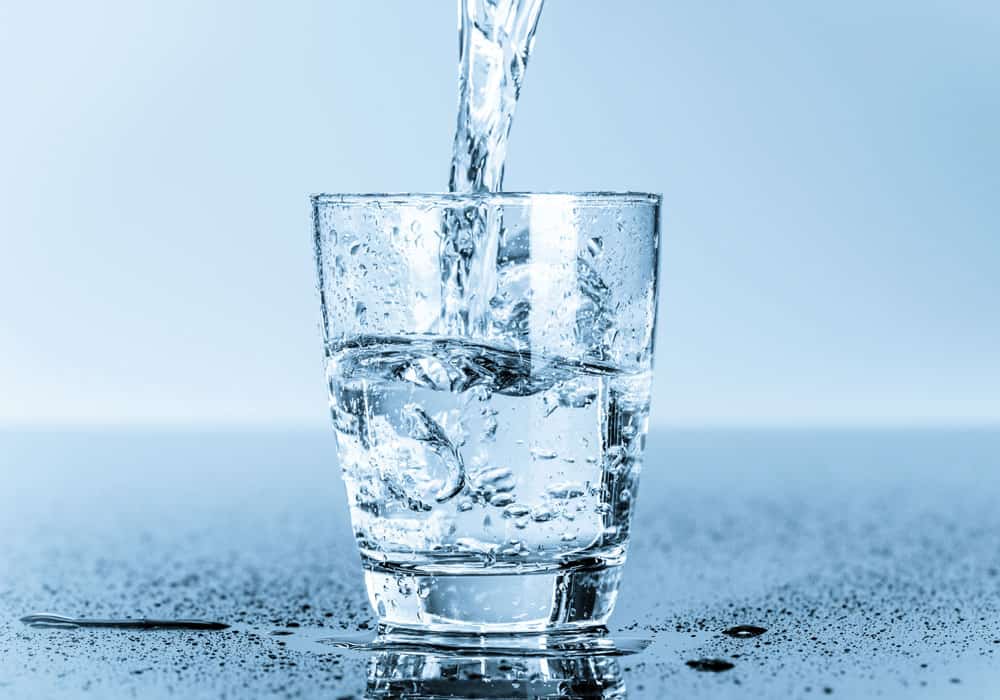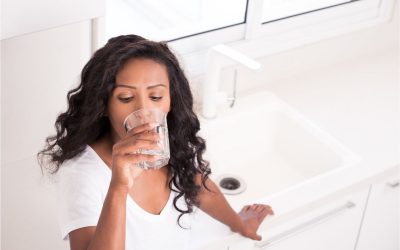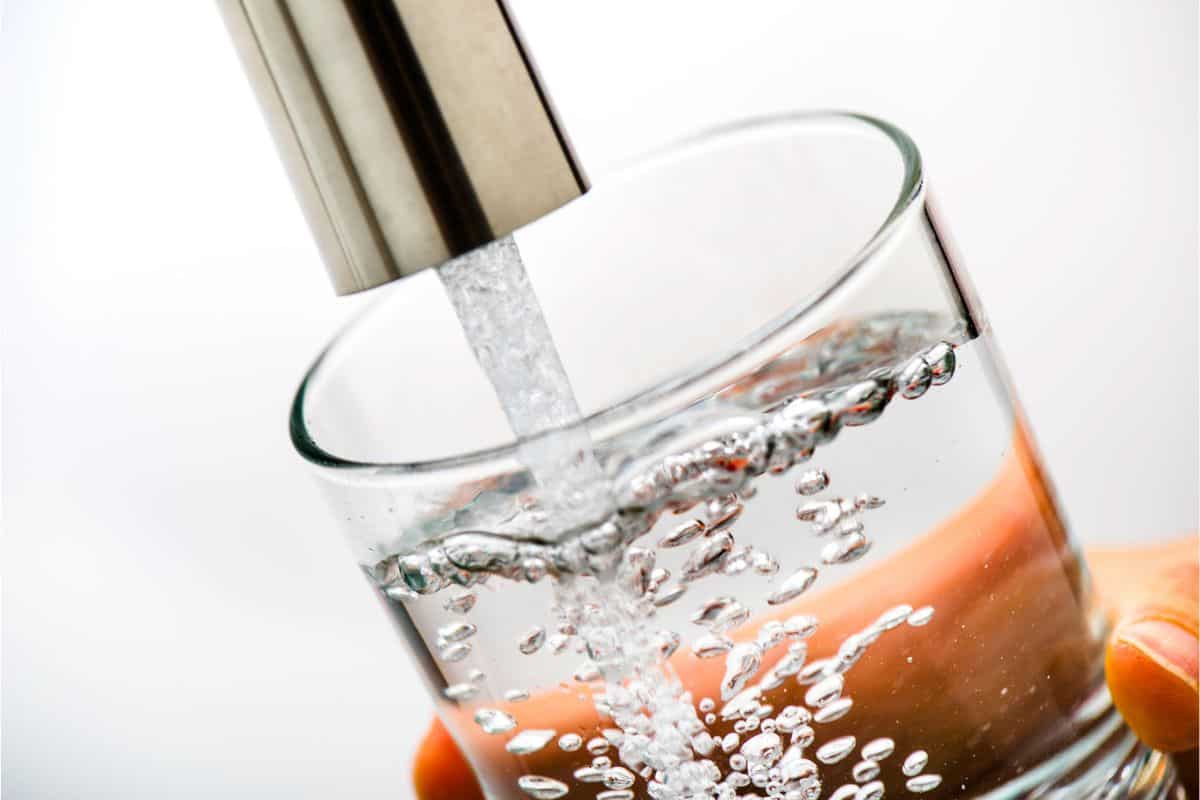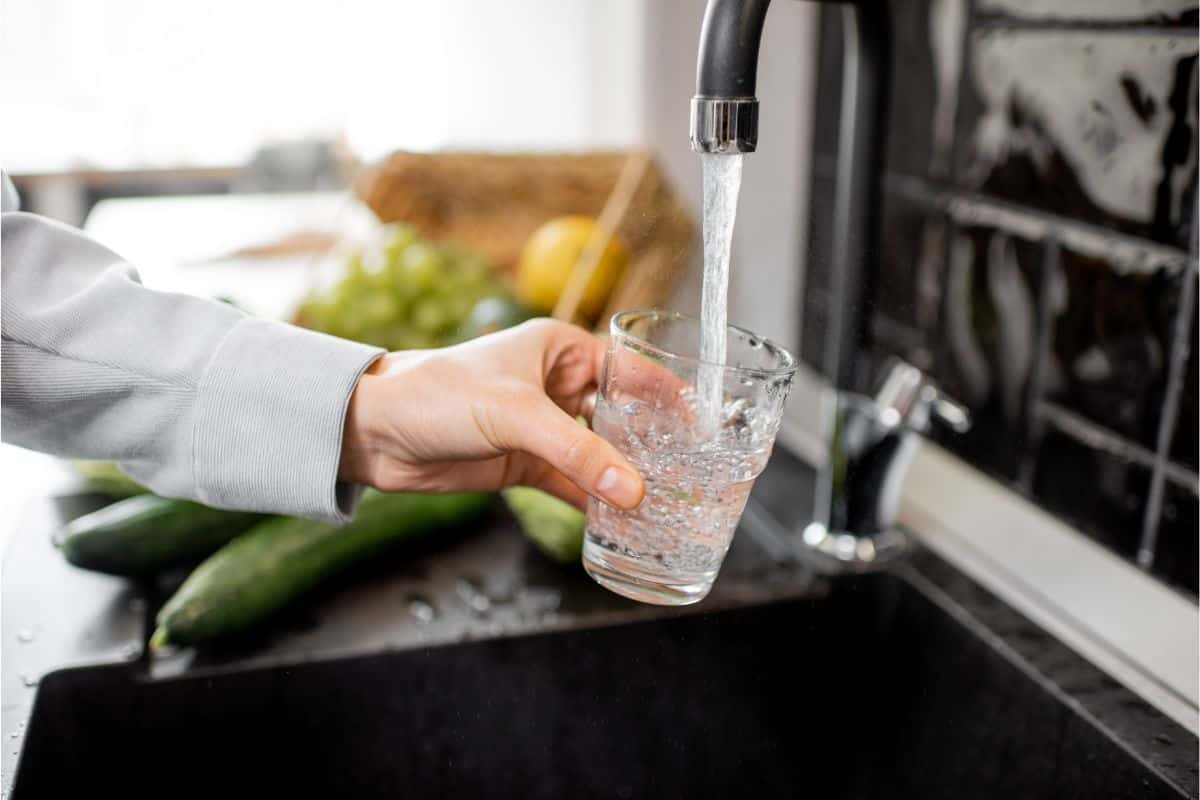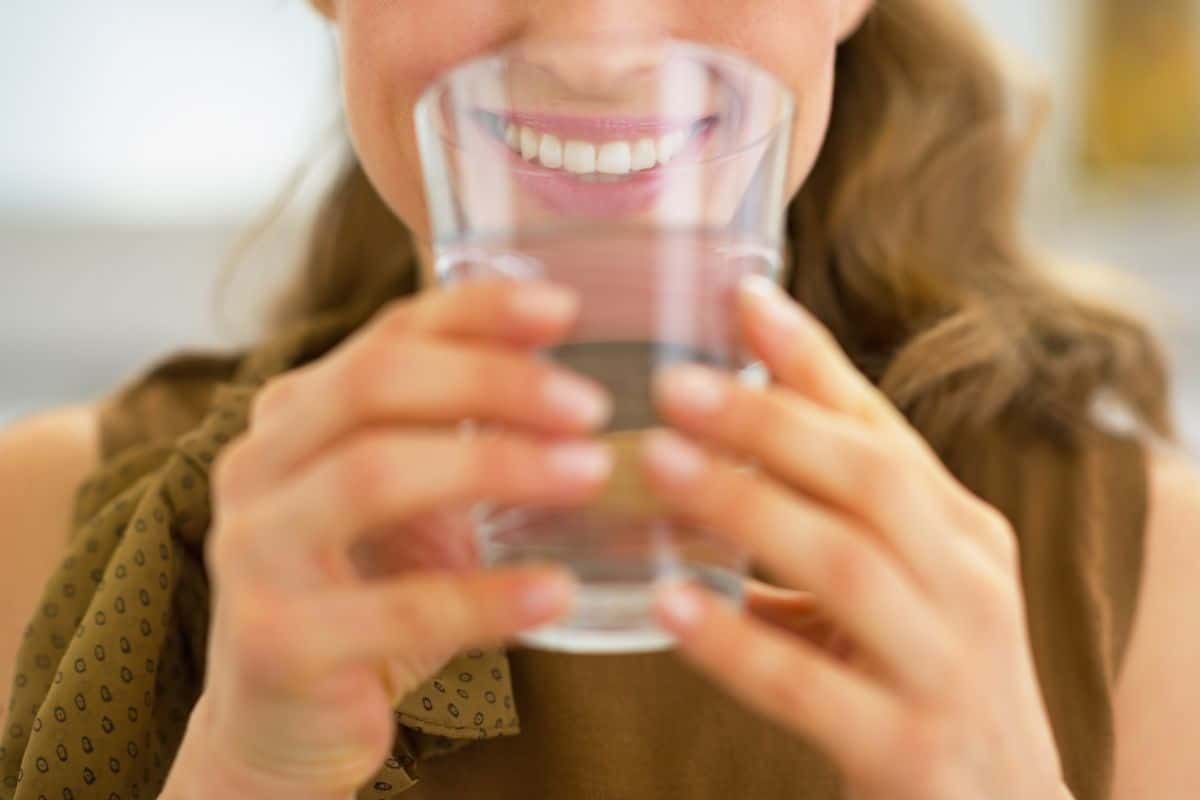Staying well-hydrated is essential for your health, but figuring out how many bottles of water to drink a day can be confusing. You’ve probably heard “8 glasses a day,” but is that the right amount for you? In reality, the ideal number of water bottles you should drink per day isn’t one-size-fits-all – it depends on your body and lifestyle. Let’s dive into the details so you can understand your hydration needs and answer the big question: How many bottles of water should you drink a day?
Contents
Staying Hydrated: How Many Bottles A Day
Health experts generally recommend that adults consume around 11 to 16 cups of fluid per day. In more familiar terms, that’s roughly 91 ounces (2.7 liters) per day for women and 125 ounces (3.7 liters) per day for men. Naturally the next question is how many ounces in a bottle of water? Or more specifically, your favorite water bottle at home.
If you’re using standard 16.9-ounce (500 mL) water bottles, women would need about 5–6 bottles a day, and men around 7–8 bottles a day to meet those guidelines. This total includes fluids from all sources, not just plain water – food and other beverages count too. So if you eat water-rich foods or drink other beverages, you may not need to empty that many water bottles.
Of course, these numbers are just a starting point. The classic “8×8” rule (eight 8-ounce glasses of water a day, roughly 4 average water bottles) is an easy-to-remember guideline and a good baseline for many people. However, your personal hydration needs might be higher or lower. Some people follow a rule of thumb to drink about half your body weight in ounces of water each day. For example, a 150-pound person might aim for about 75 ounces (roughly 4–5 standard bottles). Ultimately, how many water bottles to drink a day varies per individual. It’s important to listen to your body – if you’re thirsty or if your urine is dark yellow, those are signs you should drink more. In the next sections, we’ll explore the factors that affect your water needs and how to adjust your intake.
Factors Affecting Your Daily Water Intake
Several factors influence how much water you should drink each day. What’s right for someone else might not be right for you. Here are some key factors that affect your daily water needs and how many water bottles you might need to drink:
- Body Size and Composition: Generally, larger people need more water. Men often require more fluids than women because they tend to have higher muscle mass (muscle tissue holds more water). Your age also matters – as you get older, your body’s water content decreases and the sense of thirst can become less acute, so seniors may need to consciously drink water more often.
- Activity Level: If you exercise or have a physically demanding job, you’ll lose water through sweat and need to drink more to stay hydrated. For every hour of intense exercise, you might need an extra 12–24 ounces (about 1–1.5 standard water bottles) on top of your baseline intake. Even light activities like walking or doing chores in the yard can increase your fluid needs slightly.
- Climate and Environment: Hot or humid weather makes you sweat more, which means you’ll need to drink more water to compensate. Living or traveling at high altitudes (above 8,000 feet) can also increase your water needs due to faster breathing and dry air. In summer or during heat waves, it’s wise to carry an extra water bottle with you. And if you’re in a very dry environment or spending time in the sun, be prepared to drink more. (On the flip side, in cool or indoor climates you might not feel as thirsty, but you still need your baseline fluids.) If you’re traveling in areas where clean water isn’t readily available, plan ahead to have safe drinking water. For instance, in some regions travelers stick to bottled water for safety – our guide on drinking water in Costa Rica notes that remote areas may require extra caution and reliance on bottled water.
- Health Conditions: Your health status can impact how much water you need. If you have a fever, vomiting, or diarrhea, your body loses extra fluids – meaning you’ll need to drink more to stay hydrated and recover. Conditions like diabetes can also affect hydration. On the other hand, some medical conditions (or medications) might require fluid restrictions, so always follow your doctor’s guidance. Even catching a cold can mean you need a bit more water, especially if you’re blowing your nose often (which expels moisture) or taking decongestants (which can dry you out).
- Diet and Sodium Intake: What you eat plays a role in hydration. A diet high in salt, protein, or fiber can increase your water requirements – salt and protein make your body need more water to process them, and fiber soaks up water. If you’ve eaten a very salty meal or lots of protein, you might find yourself extra thirsty. Also, if you don’t eat many fruits and vegetables (which are usually rich in water), you’ll need to make up for that by drinking more.
- Pregnancy or Breastfeeding: People who are pregnant or breastfeeding have higher fluid needs. Pregnant women are often advised to drink around 10 cups (80 oz) of fluids daily, and breastfeeding moms may need about 13 cups (104 oz) or more, since the body is using water to produce milk. That’s roughly an extra 1–2 bottles of water per day than usual, just to support those needs. Using baby formula can help regulate supply.
- Water Quality and Availability: This isn’t about your body per se, but it can affect how you hydrate. If your tap water tastes bad or has quality issues, you might be inclined to drink less – or reach for sugary drinks instead. To stay hydrated, make sure you have water that you enjoy drinking. Consider filtering your water if you don’t like the taste or are concerned about contaminants. Installing a home water filtration system can ensure you have clean, great-tasting water available, making it easier to meet your daily quota. A faucet water filter under your sink is quick to install, or you can go for a whole house water filter instead. And if you’re unsure about the safety of your local tap water, check out your area’s water quality report (for example, our local tap water quality guides can help you see if your water is safe to drink). Having confidence in your water source will encourage you to drink enough.
Benefits of Drinking Enough Water
Why is it so important to drink the right amount of water? Proper hydration affects almost every part of your body. Here are some of the big benefits of drinking enough water each day:
- More Energy & Better Brain Function: Even mild dehydration can make you feel tired, affect your concentration, and give you headaches. Staying hydrated helps you think clearly, improves your mood, and keeps your energy levels up. (Ever feel afternoon fatigue? It might be dehydration – try drinking a bottle of water instead of a cup of coffee and you may perk up!).
- Supports Physical Performance: If you’re an athlete or just working out, water is crucial. When you’re well-hydrated, your muscles and joints work better. Water carries oxygen to your cells and helps convert food into energy. Not drinking enough can lead to muscle cramps, fatigue, and reduced strength or endurance during exercise. Think of water as the lubricant and coolant for your body’s “engine.”
- Aids Digestion & Prevents Constipation: Your digestive system loves water. Sufficient fluid helps break down what you eat and keeps things moving smoothly in your intestines. If you skimp on water, you might find yourself constipated or dealing with indigestion. Drinking enough can also help prevent kidney stones by diluting salts and minerals in your urine that can form stones.
- Flushes Out Toxins: Water is vital for your kidneys and liver, which filter waste from your blood. Getting enough H2O helps these organs do their job efficiently, reducing the risk of urinary tract infections and helping to flush out toxins through urine and sweat. It’s like giving your body a regular cleanse from the inside out.
- Regulates Body Temperature: Sweating is your body’s natural air conditioning. When you’re properly hydrated, your body can sweat and cool off when needed (and you’ll sweat out water that you can then replace by drinking). If you don’t drink enough, you risk overheating because your body can’t cool itself as well.
- Healthy Skin & Joints: Every cell in your body contains water, including skin cells. While chugging water won’t magically erase wrinkles, being dehydrated can make your skin look drier and less plump. On the flip side, well-hydrated skin cells appear healthier. Water also helps keep your joints and cartilage lubricated – your joints have fluid in them that is largely water, so staying hydrated can contribute to joint comfort.
- Weight Management: Often, thirst can be mistaken for hunger. Drinking water regularly can prevent unnecessary snacking and may help you feel full between meals. Also, if you drink water in place of sugary drinks, you’ll cut down on calories. Starting a meal with a glass of water can even help you eat a bit less, which is a simple trick if you’re watching your weight.
In short, proper hydration helps your body function at its best from head to toe. You’ll feel better, think better, and possibly even look better when you’re drinking enough. Now that we know the benefits, let’s look at what happens if you don’t get enough water – or surprisingly, if you get too much.
Risks of Dehydration (Not Drinking Enough)
Dehydration occurs when you’re not getting enough fluids. It can sneak up on you, and even mild dehydration can cause noticeable issues. Early signs include thirst (obviously), a dry or sticky mouth, and feeling sluggish or lightheaded. You might develop a mild headache or find it hard to focus. One simple way to gauge your hydration is to check your urine color – if it’s dark yellow or amber, that’s a sign you need to drink more water (ideal urine should be a pale straw color).
If dehydration worsens, the symptoms become more serious. You could experience dizziness, a rapid heartbeat, or rapid breathing. Your skin might lose elasticity and not bounce back quickly when pinched. Severe dehydration can lead to confusion, fainting, or worse – it’s a medical emergency that can require intravenous fluids. Over the long term, chronic low fluid intake can contribute to problems like kidney stones, urinary tract infections, or constipation. In extreme cases (like endurance athletes or outdoor workers not rehydrating in high heat), dehydration can lead to heat stroke, which is life-threatening. The bottom line: not drinking enough water puts stress on every part of your body, so it’s important to sip fluids regularly and not wait until you’re parched.
Can You Drink Too Much Water?
We’ve talked a lot about not drinking enough, but what about the opposite? Overhydration (drinking far more water than your body needs) can also be an issue, though it’s much rarer. Your kidneys can process a lot of water (up to around 0.8–1.0 liters per hour for most people), but if you drink faster than your kidneys can excrete the water, the excess starts to dilute the electrolytes in your blood. The most important electrolyte here is sodium. Overhydration can lead to a condition called hyponatremia, which basically means your blood sodium levels get too low because there’s too much water onboard.
Hyponatremia is serious – it can cause symptoms like nausea, headache, confusion, seizures, and in extreme cases even be life-threatening. But before you worry, know that it’s very uncommon for the average person to accidentally drink themselves into this state. Cases of water toxicity usually involve endurance athletes (who may overdo water and underdo electrolytes during events), or people in water-drinking contests or hazing rituals that force extreme intake, or certain medical conditions. For a healthy person listening to normal thirst cues, it’s hard to drink “too much” water by accident. Your body has a pretty good regulatory system and will usually make you feel not-so-great long before you reach a dangerous dilution point.
That said, moderation is key. Chugging a gallon of water in one go is not a good idea – not only will you feel uncomfortably bloated, but it could disturb your electrolyte balance. It’s better to spread your water intake out over the day. If you’re doing heavy exercise or sweating a lot, consider drinks with electrolytes or having a snack with your water. In summary, while it is possible to overhydrate, most people’s bigger concern is underhydration. As long as you’re using common sense (and not entering any bizarre water-chugging competitions), you’re unlikely to overdo it with water.
Tips to Stay Hydrated and Track Your Water Intake
Drinking enough water each day can be a challenge, but a few simple habits can make it easier. Here are some expert tips to help you stay hydrated and keep track of your water intake:
- Carry a reusable water bottle: Having water on hand makes you more likely to sip throughout the day. A reusable bottle is great because you can refill it as needed and you’ll also know exactly how much it holds, which helps with tracking. For example, if your bottle is 20 ounces and you aim to drink 60 ounces a day, you know you need to refill it three times. Plus, using a refillable bottle cuts down on plastic waste from disposable bottles – good for you and the planet!
- Set reminders or routines: It’s easy to forget to drink water until you’re really thirsty. Try building water breaks into your routine. Drink a glass (or half a bottle) first thing in the morning, one with each meal, and one in the evening. You can also set a periodic alarm on your phone or use a hydration reminder app to nudge you. Over time, it will become an unconscious habit to take sips regularly.
- Flavor your water if needed: If plain water is too boring, jazz it up in a healthy way. Add a slice of lemon or lime, cucumber, fresh mint, or a few berries to your water for a hint of flavor without adding many calories or sugar. You can also try caffeine-free herbal teas (hot or iced) – they count toward your fluid intake and can be enjoyable to drink. The more you enjoy the taste, the easier it is to reach for that water bottle.
- Eat water-rich foods: Remember that you don’t have to get all your water from drinks. Many fruits and veggies are high in water and can help you stay hydrated. Watermelon, strawberries, oranges, cucumbers, lettuce, tomatoes, celery – these are all over 90% water. Soups and broths, or even smoothies, contribute to hydration as well. While drinking water is still important, snacking on a juicy apple or having a salad can give you an extra hydration boost (and other nutrients to boot).
- Track your intake: Some people find it motivating to track how much water they drink. You can use a simple tally on paper, a note in your phone, or a dedicated app. There are even water bottles with markers for time of day (to show how much you should have sipped by noon, 3pm, etc.) or smart water bottles that sync with your phone. Tracking isn’t necessary for everyone, but if you have specific goals or you’re the type who enjoys seeing progress, it can be a helpful tool. It can also be eye-opening if you suspect you’re not drinking enough – once you start logging, you might realize you’re only getting 4 cups a day when you thought you were getting 8.
- Listen to your body: Ultimately, your body’s signals are important. Don’t ignore thirst – it’s an obvious sign you need to drink. But also pay attention to more subtle cues: dry lips or skin, feeling tired when you shouldn’t, or hunger even though you’ve eaten recently (you might actually need water, not food). And as mentioned earlier, the color of your urine is a handy indicator: aim for a light yellow color. If it’s darker, drink more; if it’s totally clear, you might be overdoing it a bit. By tuning in to these signals, you can adjust your drinking on the fly.
By incorporating these habits, meeting your daily water goal will become much easier. Over time, staying hydrated will feel effortless, and your body will thank you for it!
Common Questions About Daily Water Intake
How Many Water Bottles Is a Gallon?
A gallon is 128 ounces of liquid. If we use the typical single-use plastic water bottle size of 16.9 ounces (500 mL), one gallon would equal about 7.5 of those bottles. Of course, you can’t have half a bottle, so let’s say roughly 8 bottles of water to make a gallon. If you’re using a 16-ounce reusable bottle, you’d need 8 of those to reach a gallon as well (since 8 x 16 = 128). For a larger 20-ounce bottle, it would take about 6 and 1/2 bottles (128 ÷ 20 ≈ 6.4). And if you happen to have one of those big 32-ounce bottles, four of those will give you a gallon. In everyday terms, the “gallon a day” challenge that some people do would mean drinking around 8 average water bottles per day. That’s double the typical 4-bottle (64 oz) “8×8” recommendation. Whether you actually need a full gallon of water a day depends on the factors we discussed, but now you know how many bottles it translates to!
How Many Oz in a Water Bottle?
The answer depends on the size of the bottle – there isn’t one universal water bottle volume. However, many disposable water bottles and a lot of reusable ones are around 16 to 17 ounces. The most common disposable size you’ll see is 16.9 oz, which is 500 mL (half a liter). That’s the standard “single serving” bottle you get in multi-packs at the store. That size has about 2 cups of water in it.
There are also other common bottle sizes. For example, reusable bottles often come in 20 oz, 24 oz, or 32 oz capacities. A 32 oz bottle is convenient because it’s exactly one quart (and 32 oz is also about 0.95 liters). If you drink two refills of a 32-ounce bottle, you’ve gotten 64 ounces (which is the famous “eight 8-oz glasses” amount). You might also see 12 oz bottles (which are smaller kid-friendly sizes or the size of a soda can) and one-liter bottles (33.8 oz) which are popular for some brands of bottled water. In short, when someone says “a bottle of water,” they usually mean that ~16.9 oz size unless they specify otherwise. So, roughly 17 ounces is the answer for a standard water bottle, but always check the label on your bottle to be sure of the volume.
Do Other Drinks and Foods Count Toward My Daily Water Intake?
Yes, absolutely! All fluids you consume help contribute to your hydration, not just plain water. The recommendations of ~91 oz for women and 125 oz for men include total water from beverages and foods. So if you drink coffee, tea, milk, juice, or other beverages, those count toward your daily intake. Even sodas and sports drinks provide water – though be mindful of sugar and caffeine content. Speaking of caffeine, moderate amounts of coffee or tea are not dehydrating. While caffeine is a diuretic (meaning it can make you urinate a bit more), the fluid you drink still usually adds to your net hydration. Just don’t rely on only energy drinks or sugary sodas for your fluids, since those can have other health downsides.
Foods play a role too. On average, about 20% of our daily water intake comes from foods. As mentioned, fruits and veggies are high in water. Soups, stews, yogurt, and even pasta (which absorbs water as it cooks) contribute a significant amount. So if you eat a lot of produce and watery dishes, you’re getting water from those sources as well. This is why someone who eats very water-rich foods might drink a little less and still be perfectly hydrated, versus someone who eats lots of dry, salty snacks who will need to drink more.
In summary, all liquids count: water is best because it’s calorie-free and readily absorbed, but your cup of herbal tea, glass of iced coffee, morning smoothie, and even that bowl of watermelon all help keep you hydrated. Just remember that if a beverage has alcohol, it actually dehydrates you more (alcohol is a strong diuretic), so those don’t help your water intake – in fact, you should drink extra water if you’ve had alcohol to compensate.
Final Sip: How Many Water Bottles Do You Really Need?
Hopefully, this guide quenched your thirst for knowledge about daily water intake! To recap, how many water bottles you should drink a day depends on various factors like your body, activity, and environment. For most adults, something in the range of 4 to 8 bottles (roughly 64–128 ounces) a day is a reasonable goal, adjusting up or down as needed. Pay attention to your body’s signals – thirst, energy levels, and urine color – as they’re great indicators of whether you’re well-hydrated. By understanding your personal needs and following some simple hydration tips, you can make sure you’re drinking enough water each day to feel your best. The simple message from the Water Guides team is this – keep that water bottle handy and drink up – your body will thank you!
